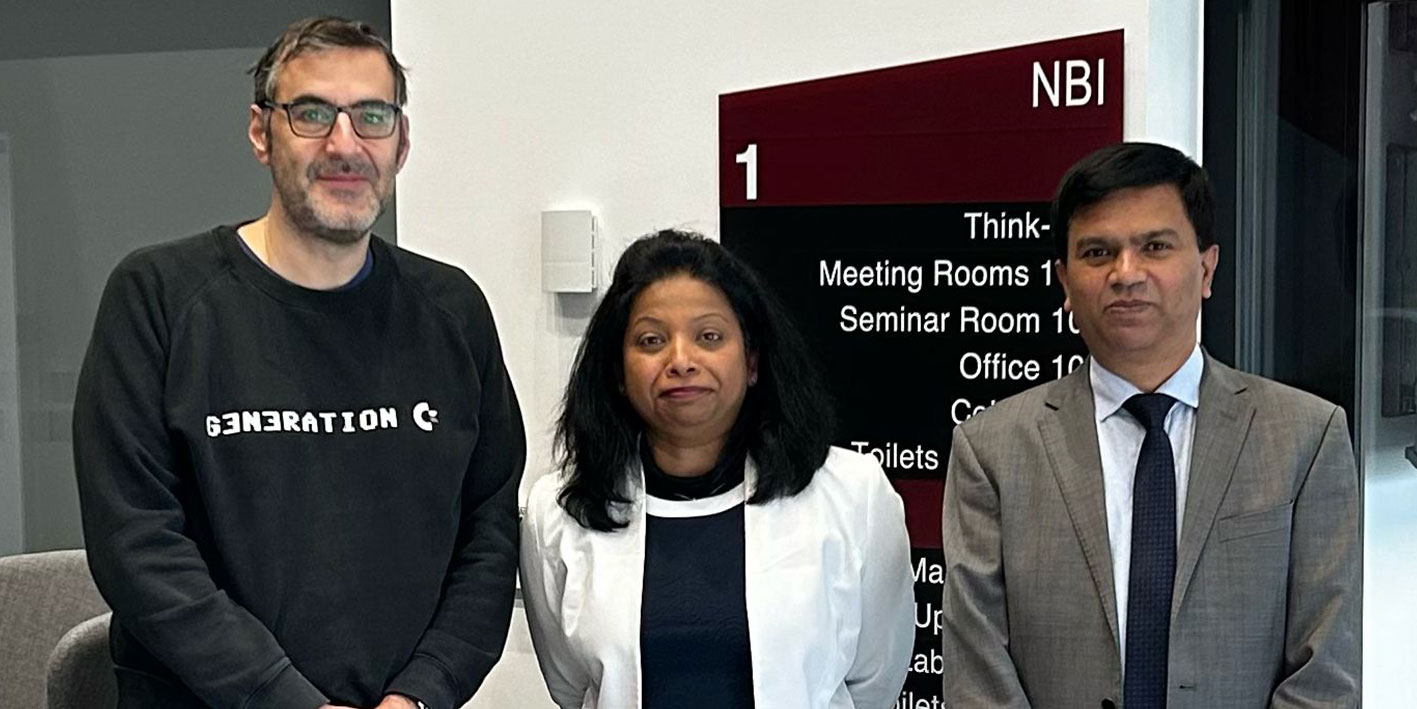
Researchers investigate effects of Covid-19 on UK construction industry

Researchers at the University Wolverhampton have investigated effects of covid-19 pandemic on the UK construction industry and the process of future-proofing business.
COVID-19 has brought immediate unprecedented change to many construction companies and their workplaces. The pandemic has drastically changed the way organisations and employees work, and therefore, senior managers are having to understand how to strategically continue with their current resources while attempting to plan for the future. However, the pandemic has produced an opportune moment to overcome many issues within the sector and improve upon them.
Dr Suresh Renukappa researcher at the University of Wolverhampton along with team members Dr Subashini Suresh and Mark Stride and support of Professor Charles Egbu, Vice-Chancellor of Leeds Trinity University identified that companies have had to adopt a three-stage process to overcome a new dimensional challenge of COVID-19. These include:
- Making quick decisions during the first stage of the pandemic
- Producing new policies and procedures to restart businesses enabling staff to return to the workplace safely
- Implementing methods to future-proof organisations against any potential pandemics
To help organisations future-proof their business five Cs are recommended.
- Create culture: Companies must create safe remote working culture.
- Control systems: Access control systems are an essential method of managing employees in an office/site.
- Courageous decisions: The government needs to help Micro, Small and Medium Enterprises’ to be more courageous and invest in more efficient methods of working such as pre-fabrication programming/ordering software and technology.
- Combat mental health: Policies must be implemented to combat mental health and well-being, infiltrating knowledge through employers by using e-learning and video conferencing by participating in courses, liaising with mental health first aiders and informally catching up with colleagues.
- Care for employees: Care must be shown towards employees as they deserve adequate safeguarding.
Dr Suresh Renukappa, Senior Lecturer in the Faculty of Science and Engineering at the University of Wolverhampton, said: “The historic issues within the construction industry have now increased due to COVID-19 where organisations have to maximise the efficiencies of their resources. However, this could have a positive effect on the industry enforcing companies to become more innovative and enhance industry 4.0.
“The issues within the sector intertwine, and therefore by reducing issues within a single area will consequently help other issues such as greater talent management and upskilling, increasing digitalisation, cost efficiencies and mental health and well-being. However, it is also imperative that organisations strategically learn from the pandemic, while using a proactive nature to future-proof their businesses.”
This work makes a major contribution to research in the field of crisis management and the effects of a pandemic have had on the UK construction sector. This research calls to explore the impact of the COVID-19 pandemic on the construction sector worldwide to identify similarities and differences between responses in developed and developing countries.
The research has been peer reviewed and published in esteemed Construction Innovation: Information, Process, Management Journal.
Contributors: Stride, M, Renukappa, S.Suresh, S., and Egbu, C., (2021) The effects of COVID-19 Pandemic on the UK construction industry and the Process of Future Proofing Business, Construction Innovation: Information, Process, Management, Emerald publications.
For more information please contact the Corporate Communications Team.


/prod01/wlvacuk/media/departments/digital-content-and-communications/images-2024/240328-Varsity-Line-Up-Resized.jpg)
/prod01/wlvacuk/media/departments/digital-content-and-communications/images-18-19/220325-Engineers_teach_thumbail.jpg)
/prod01/wlvacuk/media/departments/digital-content-and-communications/images-2024/240404-Digital-Humanities-Training-Resized.jpg)
/prod01/wlvacuk/media/departments/digital-content-and-communications/images-2024/240320-Uzbekistan-Resized.jpg)
/prod01/wlvacuk/media/departments/digital-content-and-communications/images-2024/240229-The-Link-Resized.jpg)
/prod01/wlvacuk/media/departments/digital-content-and-communications/images-2024/240404-Pharmacy-Students-Resized.jpg)

